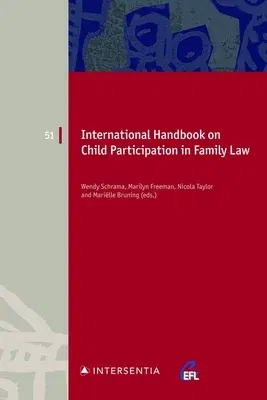This topical and timely book considers children's participation rights
in the context of family law proceedings, and how their operation can be
improved for the benefit of children and family justice systems
globally. In doing so, it provides the pedagogical reasoning for child
participation, as well as a thorough analysis of the relevant human
rights instruments in this area, including the United Nations Convention
on the Rights of the Child. This comprehensive book examines the way in
which private international law instruments deal with child
participation in separation/divorce, parental responsibility and child
abduction proceedings. In addition, the book includes individual
contributions from renowned family law experts from 17 countries who
describe and analyse the local laws and exercise of child participation
rights in their own jurisdictions. These insightful texts include the
authors' views on the improvements needed to ensure that child
participation rights are fully respected and implemented in the
countries under review. A detailed comparative analysis follows which
helpfully pinpoints both the key commonalities and differences in these
global processes. Finally, the concluding chapter draws together the
different perspectives revealed across the handbook, and identifies
several key issues requiring further reflection from scholars, policy
makers and family justice professionals. The International Handbook on
Child Participation in Family Law is a rich source of information and
essential reading for all those working in this important and evolving
field.

